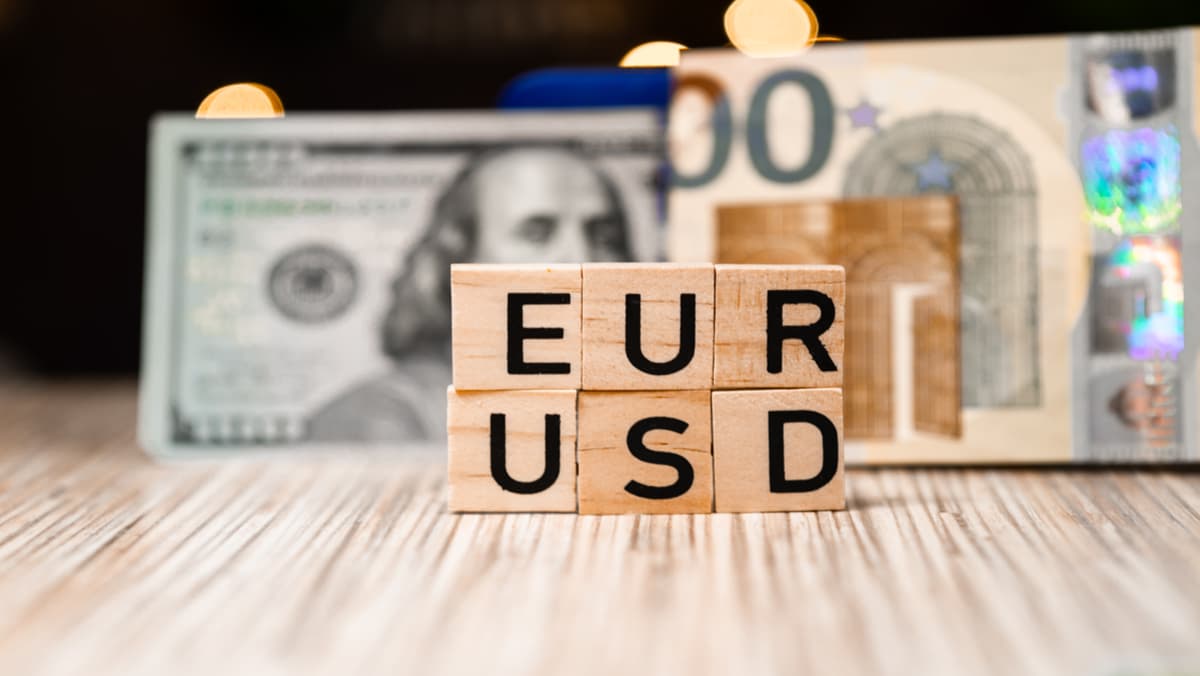Jumat Apr 25 2025 10:04

6 min

How will tariffs affect forex: the foreign exchange (forex) market is highly sensitive to geopolitical events, economic policies, and trade relations between countries.
One significant factor influencing currency values is the imposition of tariffs. Recently, the EUR/USD currency pair has shown signs of weakness amid ongoing trade uncertainty, particularly related to tariffs. This article explores how tariffs impact forex markets, the specific effects on the EUR/USD pair, and the broader implications for currency traders.
What Are Tariffs?
Tariffs are taxes imposed by governments on imported goods. They are used to protect domestic industries from foreign competition by making imported goods more expensive. While tariffs can benefit certain sectors within a country, they often lead to increased costs for consumers and can disrupt international trade relationships.
Economic Consequences of Tariffs
Increased Costs: Tariffs raise the prices of imported goods, which can lead to inflation. Higher consumer prices can reduce disposable income and dampen economic growth.
Trade Imbalances: Tariffs can alter trade balances by reducing imports and potentially leading to retaliatory measures from other countries. This can create a cycle of escalating trade tensions.
Market Sentiment: The announcement or implementation of tariffs can create uncertainty in the markets. Traders often react to this uncertainty, leading to volatility in currency pairs.
Recent Developments
The EUR/USD pair, which represents the exchange rate between the euro and the US dollar, has experienced fluctuations due to trade-related uncertainties. As tariffs are introduced or threatened, market participants reassess their positions, leading to shifts in currency values.

Factors Contributing to the Weakening of the EUR/USD Pair
US Tariff Policies: Recent announcements regarding tariffs on various imports have raised concerns about the potential impact on the US economy. As the market digests these developments, the dollar may weaken if traders believe that tariffs will harm economic growth.
European Economic Stability: Conversely, the eurozone's economic stability plays a crucial role in the EUR/USD dynamics. If European economies are perceived as more resilient in the face of trade tensions, the euro may strengthen against the dollar, leading to a weakening of the EUR/USD pair.
Investor Sentiment: Market sentiment can shift rapidly based on news related to tariffs. If traders perceive that the US is taking a more aggressive stance on trade, they may sell dollars in favor of euros, contributing to the weakening of the EUR/USD pair.
Currency Volatility
Tariffs can lead to increased volatility in the forex market. As traders react to news and developments, currency pairs can experience sharp movements. This volatility can create both risks and opportunities for traders.
Impact on Other Currency Pairs
While the focus may be on the EUR/USD pair, tariffs can also affect other currency pairs. For instance, currencies of countries that are directly impacted by US tariffs may weaken against the dollar. Conversely, currencies of countries that benefit from trade tensions may strengthen.
Long-Term Considerations
The long-term effects of tariffs on forex markets depend on various factors, including the duration of the tariffs, the response from trading partners, and the overall economic environment. If tariffs are seen as a temporary measure, the impact on currency values may be limited. However, prolonged trade tensions can lead to structural changes in the forex market.
Market Volatility
The forex market is inherently volatile, and the introduction of tariffs can exacerbate this volatility. Rapid price changes can lead to significant losses, particularly for those who are not prepared for sudden market shifts.
Sector-Specific Risks
Tech and manufacturing sectors are often the most affected by tariffs. Changes in these sectors can lead to broader economic implications, impacting currencies associated with these industries. A downturn in a crucial sector may lead to a weakening of the currency tied to that economy.
Liquidity Risks
In times of increased volatility, liquidity can diminish, making it harder to execute trades at desired prices. This situation can lead to slippage, where trades are executed at less favorable prices than anticipated.
Regulatory Risks
The uncertainty surrounding tariffs can lead to changing regulations and policies that may affect currency values. Traders must stay informed about potential regulatory changes that could impact market conditions.
Emotional Trading
The uncertainty created by tariffs can lead to heightened emotional decision-making among traders. Fear and uncertainty may prompt impulsive trading decisions, which can increase the risk of losses.
The impact of tariffs on the forex market, particularly the EUR/USD pair, is significant and multifaceted. As trade uncertainties continue to evolve, traders must remain vigilant and adaptable. Understanding the economic implications of tariffs and their effects on currency values can help market participants navigate the complexities of the forex landscape.
By staying informed and employing sound trading strategies, participants can better position themselves to respond to the challenges and opportunities presented by the ongoing trade dynamics.
When considering shares, indices, forex (foreign exchange) and commodities for trading and price predictions, remember that trading CFDs involves a significant degree of risk and could result in capital loss.
Past performance is not indicative of any future results. This information is provided for informative purposes only and should not be construed to be investment advice.